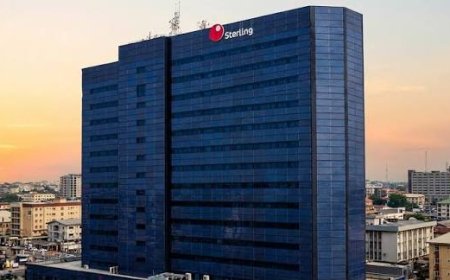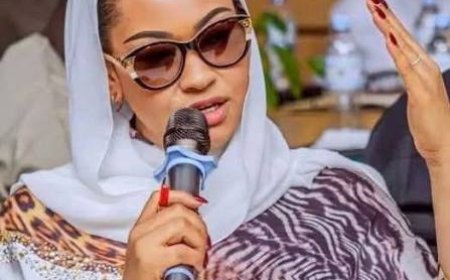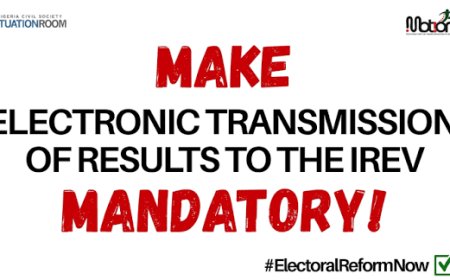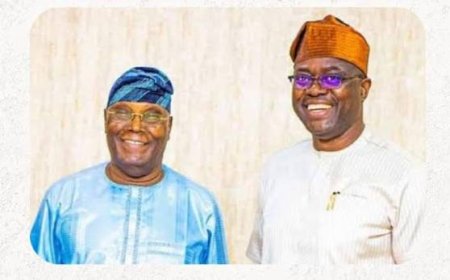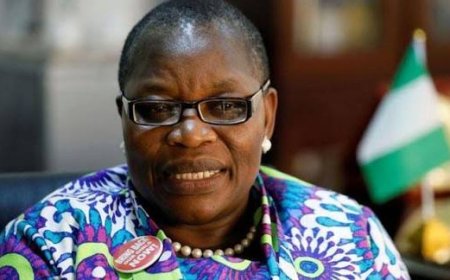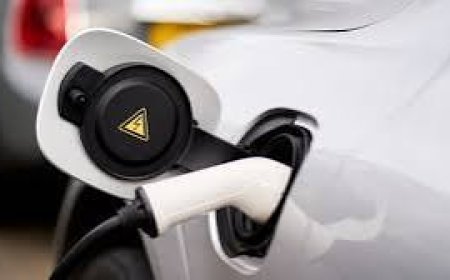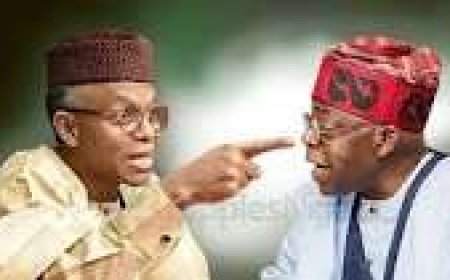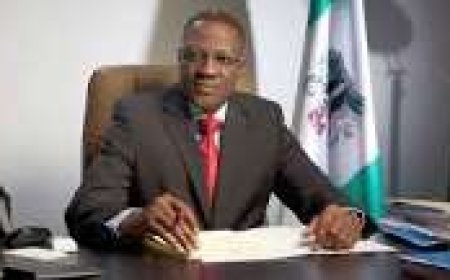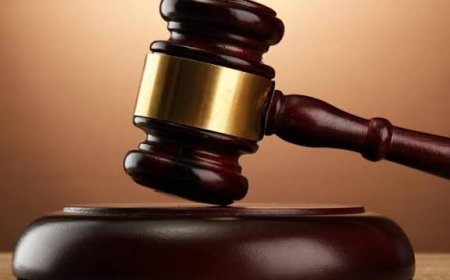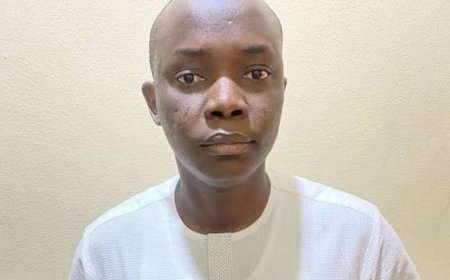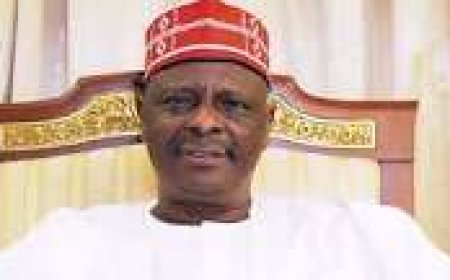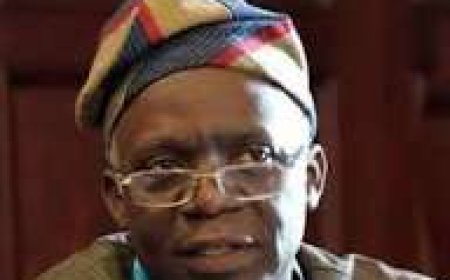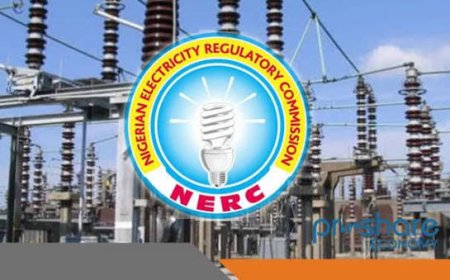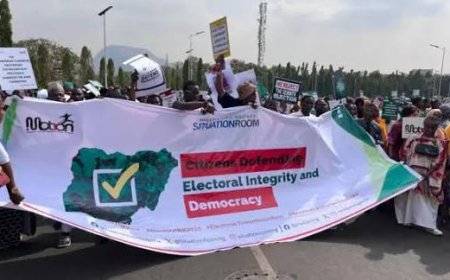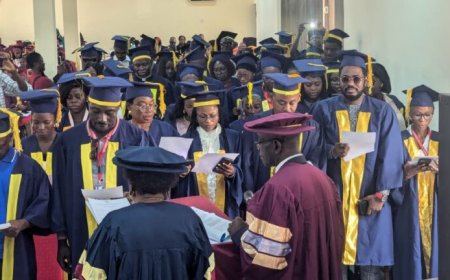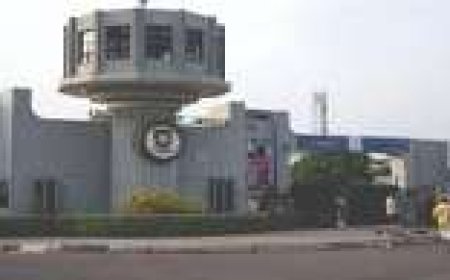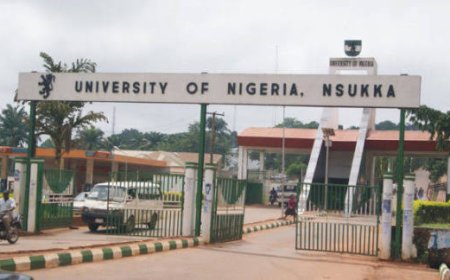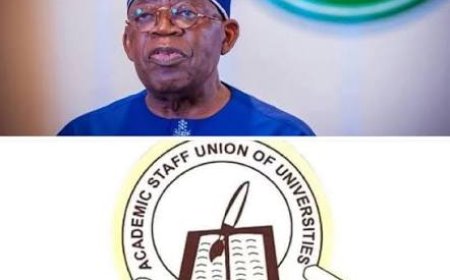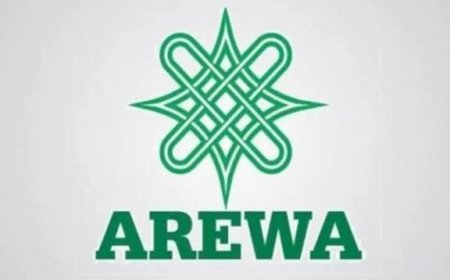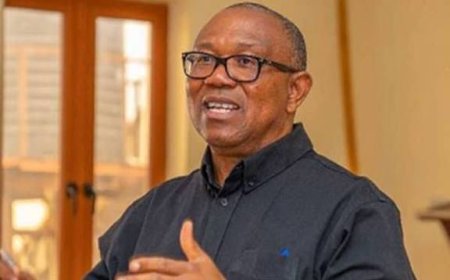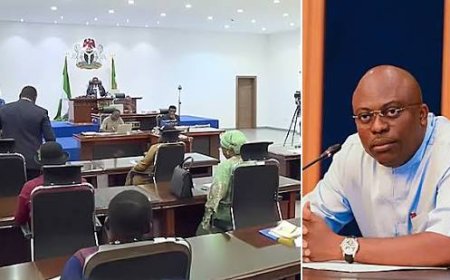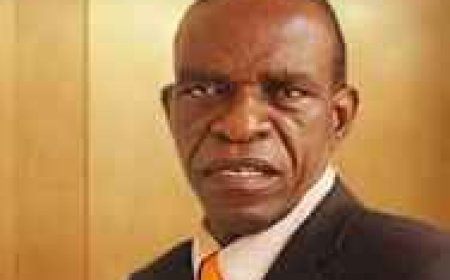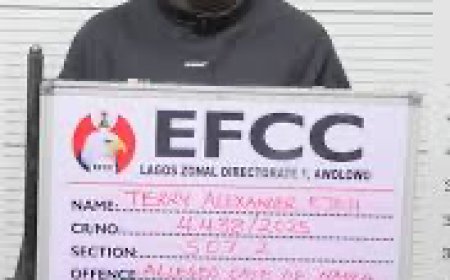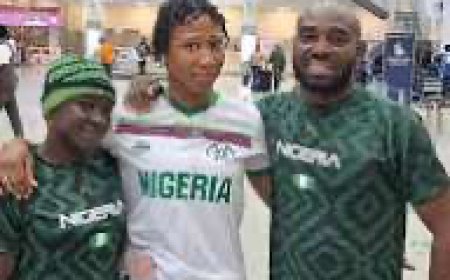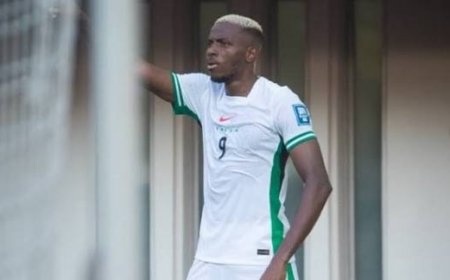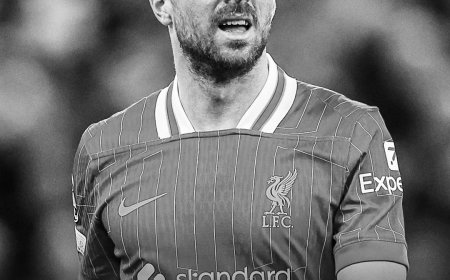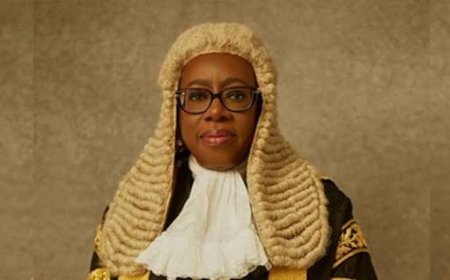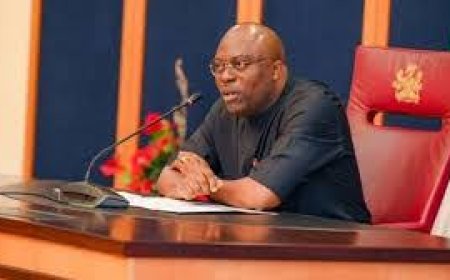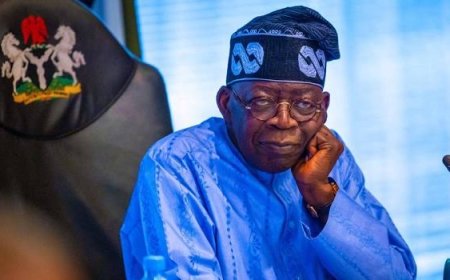2027: Why Tinubu's Focus Is Not On V youroters
“ _The only title in our democracy superior to that of President [is] the title of citizen.”_ —Louis Brandeis, 1937
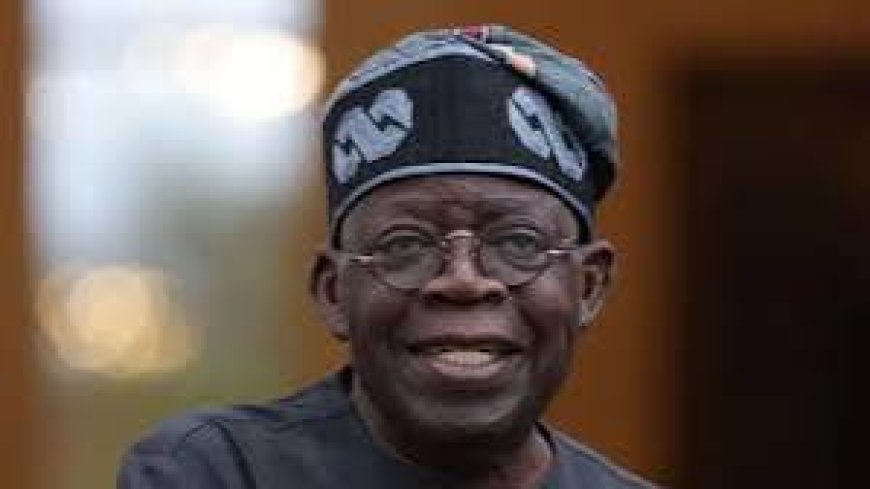
By Ike Abonyi
“ _The only title in our democracy superior to that of President [is] the title of citizen.”_
—Louis Brandeis, 1937
Notwithstanding the inevitable power of citizens as recognised in all democracies globally, in Nigeria, they have remained conspicuously estranged in most political decisions, including but not limited to their constitutional rights to determine who rules them in a democratic governance.
When you are about to enter a boxing ring for a contest well prepared and confident that you expect to even record a knock out in early round against your opponent and you suddenly realize that your opponent very well aware of your potentials has decided to rely on other variables outside what happens at the ring to win the contest, what do you do?
How would you react when you discover that your opponent is relying on the manipulation of the umpires and judges to sway results in his favour even if such is not the true reflection of the situation in the ring?. How do you even begin to imagine that your opponent, despite not being technically and tactically equipped for the fight, is deriving his confidence of victory against his opponent from a voodoo, a prediction of marabouts who had assured him of victory no matter the strength of his opponent. This may sound bizarre but it’s not out of place in a political environment engulfed by corruption in most of their activities.
This appears to be a similar scenario that dictated the character of politics in 2023, aiming to be repeated in the forthcoming Presidential election in Nigeria in 2027. President Bola Ahmed Tinubu and his ruling All Progressives Congress, APC, are preparing for the election, but the voters are not their focus. Why, because from inception, they have not factored them, knowing that they will be unable to deliver what will positively cement their relationship with the people. They also know from true intelligence available to them now that they did not, ab initio, win the people’s votes in the last election. They know as a fact that even the figures being bandied about are ridiculous, that out of over 94 million voters, a winner got a paltry 8million, meaning that over 85 million eligible voters didn’t desire him.
If the feeling of Nigerian voters was this bad in 2023, imagine what it would be in 2027 after the disastrous Presidency of this administration.
Therefore, nobody should be surprised that the President and his party are looking elsewhere than the people for their second term. In an ideal democracy, everything revolves around the people because they are at the centre of every representative government. The initiators of democratic governance, like Abraham Lincoln, define it as a government of the people by the people and for the people.
In a democracy, no government endures if it’s not popular with the people, if its policies and programs are not agreeable and pleasant to the citizens. The people in question are not a few elites that control the economic, political and social lives of the nation; the people are the mass of the population, who are largely more in number.
If President Tinubu and his ruling party are jittery and panicking over 2027, if they are going paranoid over a second term, if they have abandoned governance for politics in their midterm in office, it’s because they are disconnected from the root of democracy, which is the Nigerian people.
Evidently, in all their project executions, the Tinubu regime has refused to prioritise the poor; most of their elephant projects are driven by corruption and for elite interests. For instance, in Abuja, the nation’s capital, they would rather scrap good roads and redo them than open a new one or repair dilapidated roads that are scattered all over the place, serving the ordinary people. They would rather spend N39b to renovate an international conference centre to attend to the bourgeois than provide basic health care facilities for the mass poor. They would rather build a coastal super Highway than open rural access roads and repair critical link roads across the country. They will rather pressure governors, Senators and other elected officials to come over to the APC than strive to impress the voters.
Against this backdrop, President Bola Tinubu's potential re-election bid in 2027 seems unlikely to rely solely on voters' support. Why, because Nigerians have lost faith in the ruling party, whose activities have threatened the very foundation of democracy in Nigeria. A visibly bitter former Kaduna State Governor, Nasir El-Rufai, strongly believes Tinubu's re-election is impossible due to the loss of confidence by the people. As integrity-challenged as El Rufai, considering his dishonest role in bringing the regime to power, on this matter, his views tally with many electoral watchers. In an ideal democracy, the viability of Tinubu’s second-term ticket should be in question to save the party.
Added to that are also the conspicuously emerging regional dynamics. The northern region, which significantly contributed to Tinubu's 2023 victory and still controls a large chunk of the votes, is now hesitant to support his re-election bid.
The very apparent shifting of voters' sentiments is not in favour of Tinubu. The appeal now being pushed by the Nigerian voters nationwide is towards having a younger, agile and competent person with the capacity to address the problems and compassion for the people.
These pragmatic factors are in a way that cannot be disputed, suggesting that Tinubu's re-election bid may face significant challenges, and relying solely on voters' support might not be sufficient for the desired victory.
The focus of the regime is clearly on the three obvious partners available that helped them to circumvent the people in 2023 and who are positioning themselves to repeat it in a second term. These bodies that have disposed themselves to undermine democracy include the Independent National Electoral Commission, INEC, the security agencies and the Judiciary. These critical democratic institutions have unashamedly made themselves significant obstacles to free and fair elections in Nigeria.
INEC's Institutional weaknesses, ranging from inadequate funding, logistical bottlenecks, and insufficient training for electoral officials, are deliberately orchestrated to disrupt the smooth conduct of elections. And added to that are the annoying judicial interventions. The judiciary's frequent overturning of election results raises concerns about the reliability of initial electoral outcomes and the potential for judicial bias. In Nigeria, the Judiciary has ignored Francis Bacon's teaching that “Judges ought to remember that their office is jus dicere and not jus dare; to interpret law and not to make or give law.”
All these electoral anomalies have resulted in the People’s loss of confidence in the electoral system. It’s as conspicuous as a nine-month pregnancy that today, as we march into 2027, Nigerians have lost faith in their electoral system. The notable evidence to this is with the voter turnout declining significantly in recent elections In Nigeria, in 2015, 44% of registered voters participated, but this dropped to 27% in 2023 and could be more in 2027 if the Tinubu regime continues the on-going frustration of the opposition parties and the prioritization of electoral manipulation through corruption. The obvious consequences of an inadequate electoral system are the people’s disillusionment with Democracy. Nothing threatens the very foundation of democracy more than the growing decline in voter turnout and lack of confidence in the electoral system.
But is staying away from politics or the ballot box the best option? It’s certainly not the solution to our problems. If citizens of any nation desire good in their political trajectory, they must stand up for it and take the destiny into their own hands. That is perhaps why G.K. Chesterton likened democracy to blowing your nose. “You may not do it well, but it's something you ought to do yourself.” If suffrage is a pivotal right of the citizens and our wish as expressed is not reflected, should we just wait and allow our citizenship rights to be taken away from us by some brazen, corrupt elites?
I think Nigerians have arrived at the junction in our political life where we need to realise the old saying that as you make your bed, so you will sleep on it. If the focus is not on you, assert your constitutional right because it should be on you. That is what makes your citizenship even superior to that of the President of the country. Our own literary icon Chinua Achebe sums it up copiously that
“A functioning, robust democracy requires a healthy, educated, participatory followership, and an educated, morally grounded leadership.” And that
“Everybody counts in applying democracy. And there will never be a true democracy until every responsible and law-abiding adult in it, without regard to race, sex, colour, or creed, has his or her own inalienable and unpurchasable voice in government.” God help us.
What's Your Reaction?








